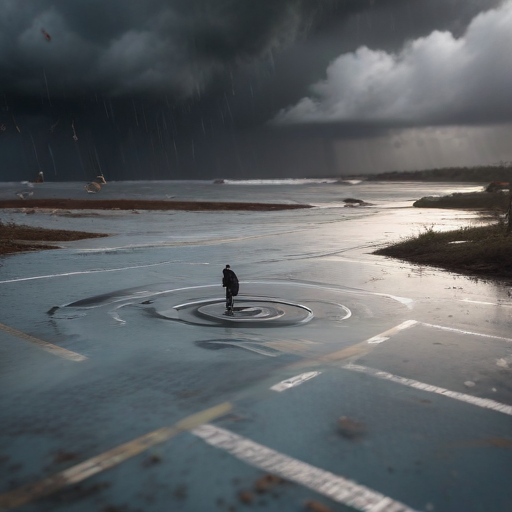Cyclone Chido has wreaked havoc in Mayotte, leading to widespread devastation, a rising death toll, and urgent calls for humanitarian aid. With wind speeds surpassing 220 km/h, Chido struck the French Indian Ocean territory last Saturday, marking the most severe storm to impact Mayotte since the 1930s.
Officials have indicated that the death toll could reach “several hundred” or even thousands. Mayotte’s interior minister emphasized that it will take considerable time to accurately assess the human toll of the catastrophe. In response to the crisis, French authorities have mobilized over 1,600 police and gendarmes to assist affected individuals. Additionally, 250 rescue personnel are being dispatched from mainland France and the nearby island of Réunion.
Home to a population of approximately 300,000, Mayotte is known as the European Union’s poorest territory, with a significant portion of its residents living in makeshift conditions that have now been devastated. Eyewitness accounts have described entire neighborhoods flattened, with uprooted trees and overturned boats scattered across the region. Critical infrastructure, including the main airport and hospitals, as well as electricity and water services, has sustained extensive damage, complicating relief efforts as only military aircraft can currently land.
Prefect François-Xavier Bieuville highlighted the difficulties in accurately counting casualties, particularly among undocumented migrants and due to local customs that call for rapid burial within 24 hours.
Pope Francis has expressed his condolences during a visit to Corsica, praying for the victims and urging the international community to provide support, stating, “I am spiritually close to those who have been affected by this tragedy.”
Beyond Mayotte, Cyclone Chido has also significantly impacted the Comoros Islands and Madagascar, moving towards Mozambique and affecting Cabo Delgado province, leaving around two million people in urgent need of assistance, according to UNICEF. Despite the cyclone weakening, regions like Malawi and Zimbabwe are on high alert for potential flooding and evacuations.
Currently, Mayotte is in dire need of aid as rescuers strive to assist survivors and evaluate the full extent of the disaster. The resilience of the local community, combined with international support, offers hope for recovery in the wake of this devastating storm.
In summary, while the destruction caused by Cyclone Chido is extensive, the collaborative efforts of local and international agencies can pave the way for rebuilding and rehabilitation, highlighting the strength of humanitarian response during times of crisis.
